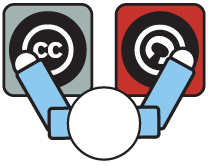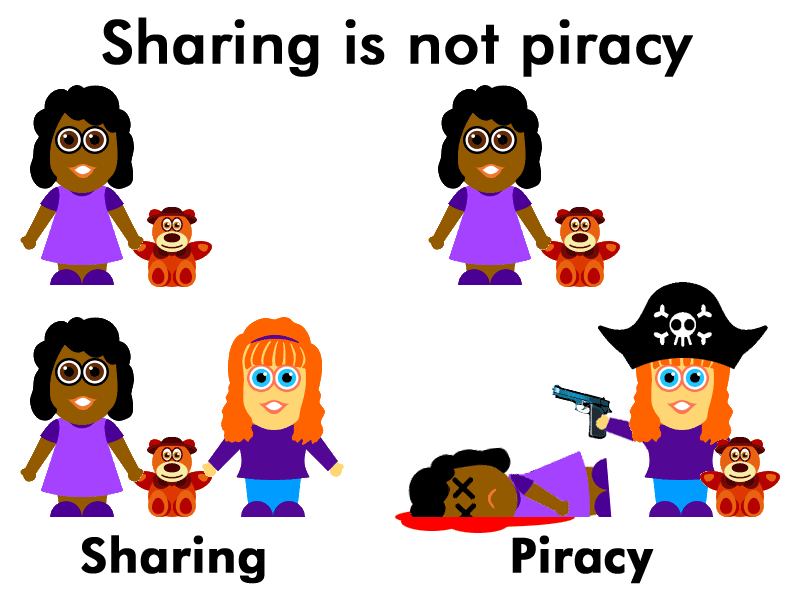I have been researching the incorporation of blogging in the classroom – a part of
blended learning, as
Jonny mentioned last week – since last fall. Within my own classes in the
Women, Gender & Sexuality Studies department at SIUC, I have jumped into
classroom blogging with both feet, increasing both the access as well as the responsibilities that my students have on our blog in the three semesters I've been teaching. Building on this blended learning approach has yielded overwhelmingly positive results in the openness of communication and sharing of voice in my classroom as well as others' within various disciplines. (To read some of my research, see the
first article posted on my website.)
However, aside from exploring a new form of writing and expression with my students on our blog, I have also recently become interested in using the internet as a potential space for sharing pedagogical experiences with folks outside of the classroom.
 |
why does blogger turn this image black instead of white? mysteries of the interwebz.
|
One particular instructor,
Mark Sample, an assistant professor at
George Mason University involved with the English and cultural studies departments as well as the
Center for History and New Media, has been an especially helpful inspiration for my own incorporation of new media in my women's studies classes. Through his combo-personal and professional blog, he has regularly reported on incorporating blogging and social media networks within his
classes (on subjects like graphic novels, video gaming, and textual media... oh my!) Not only are his syllabi for current and past semesters available for anyone to view online -- a step toward accessibility and information sharing that I appreciate as a new teacher -- but he also blogs and tweets about the benefits and problems he encounters when dealing with this style of blended learning.
In a recent post on digital humanities, he makes the following claims that attest to this online openness:
The promise of the digital is not in the way it allows us to ask new questions because of digital tools or because of new methodologies made possible by those tools. The promise is in the way the digital reshapes the representation, sharing, and discussion of knowledge. We are no longer bound by the physical demands of printed books and paper journals, no longer constrained by production costs and distribution friction, no longer hampered by a top-down and unsustainable business model. And we should no longer be content to make our work public achingly slowly along ingrained routes, authors and readers alike delayed by innumerable gateways limiting knowledge production and sharing.
 |
| copyright remix |
Again, as a graduate instructor who is fascinated by accessibility and new media/blended learning, I find this inspiring. His work acted as a starting point in exploring the expanding world of alternative information sharing and collaboration practices across virtual spaces. Another resource that I have found very recently that relates to this concept of open access is
#alt-academy, a project under the
MediaCommons community network (protected by
Creative Commons, an approach to information sharing that "create[s] a balance inside the traditional “all rights reserved” setting that copyright law creates"). #alt-academy, or #alt-ac, is described as being:
both an edited collection and the embodiment of a grassroots, publish-then-filter approach to networked scholarly communication. All community members can comment on existing essays and freely publish relevant work as part of this site, thereby making their content available at a stable URL and discoverable through search.
 |
| THE MORE YOU KNOW ~~*~*~* |
This bottom-up, "publish-then-filter" method seems to be working toward a sense of community and open access to information, a larger example of what Mark Sample was referring to above. The members, according to the website, are described as "'alternative academic' humanities scholars" and are rarely employed "traditionally" as tenure-track professors. This can be seen as appealing for those trying to explore non-professional options and also potentially as a space away from elitism and competition that often surrounds both academic careers as well as academic blogging. [Additional resources for those interested are
GradHacker, a spinoff of
ProfHacker, and
THATcamp "unconferences".]
This less competitive, 'Sharing is Caring'/
open-source style of internet community is very refreshing (to me) in comparison to the
overwhelmingly capitalistic alternatives (as Sam pointed out in his blog
post).
 |
| "You are not cool enough to access!" |
Applying it to spaces beyond media sharing and bandwidth regulations, places like MediaCommons and #alt-academy push the issue into the realm of academic content that moves beyond traditional (and often elitist) modes of in/accessibility, in which permission to view and read scholarly material is granted primarily to those who have paid subscriptions to journals and databases.
Matthew Hindman, in his book,
The Myth of Digital Democracy, reports on the
elitism often involved in political blogging (the bloggers in his studies typically coming from prestigious universities), one that I believe is fairly cyclical based on access to information under the current system. Although this is pointed out and criticized within his text (pgs. 113-128), I can't help but notice that Hindman himself -
an alum of Princeton and previously a Doctoral Fellow at Harvard - participates in this elitism and privacy of information in his own way, limiting viewership to his text (published by Princeton) to those who purchase the book traditionally. He does not seem to be criticizing the larger system of publications and restricted accessibility within the academic world, as places like New Media Studies programs, Grad/ProfHacker, and #alt-academy are, but merely stating its presence within yet another written space.
While I understand and appreciate pointing out the limitations of blogging and online communication, as opposed to automatically heralding it as a equal-opportunity space free of racism/sexism/classism/ablism/etc., I would enjoy more dialogue on what we could be doing (or not doing) to "practice what we preach" in our own academic lives. I am just beginning to explore these alternative spaces like those mentioned above and excited to look for more personal narratives from those who have participated in them. I would like to close this post with a request for more information or opinions on this tension between more private outlets of publishing vs. sharing and accessibility. How would you use these resources in your own lives, your research, and/or your classrooms if you choose to teach? Do these alternatives cause you to question traditional teaching jobs?
 |
| Talk amongst yourselves. |






i really love this, kate.
ReplyDeletei struggle with having anything productive to add, because i think probably you & i have really similar ways of thinking about stuff. mostly, my reaction is "fuck yeah, public scholarship on teh interwebz!"
i appreciate that, nichole. that's typically how i feel when you say/post things as well.
ReplyDeleteit's hard when both of us just always have the best ideas (ha ha) :P